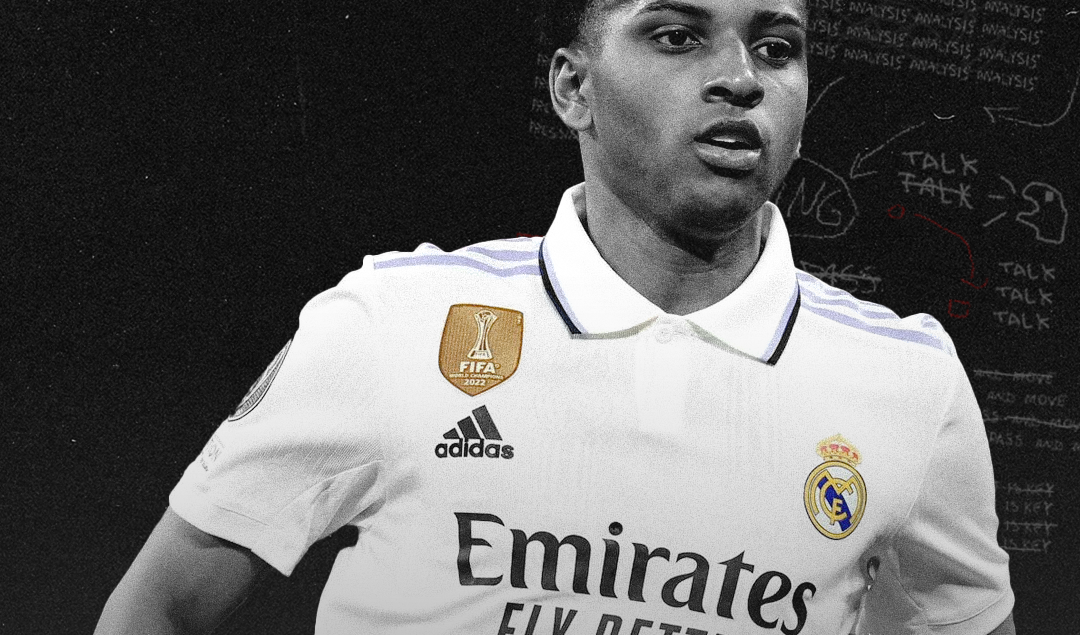Wembley Stadium, Welcome to Real Madrid
This club, this stadium — each moment crafted with magic; a continuous story of unrivalled legacy. Real Madrid once stepped foot in another Champions League final, snatching joy away from Bayern Munich in the dying embers of the game to set themselves up for another coronation on British soil in the final against the lesser-known German team, Borussia Dortmund. As June 1st approaches, our immediate concern is to examine the drama that unfolded at the Bernabéu.
Real Madrid unleashed a relentless assault akin to rabid hounds in the early stages, with Vinicius Jr’s near miss and Manuel Neuer’s heroics denying Rodrygo. Employing a familiar La Liga tactic, Toni Kroos dropped deep into a makeshift defensive line, triggering Madrid’s trademark long-passing sequences.With Vinicius Jr, Jude Bellingham, Ferland Mendy, and omnipresent Rodrygo operating in clusters on the right, Madrid forced Bayern to shift their defensive focus, allowing Dani Carvajal to exploit space on the opposite flank for cross.
Bayern’s initial mid-block press faltered, prompting Leroy Sane to press Kroos, but Madrid adapted swiftly. Kroos exploited space to find Vinicius Jr on the left, causing havoc against Joshua Kimmich. Alternatively, Kroos advanced, with Aurelien Tchouameni and Federico Valverde assuming double pivot roles. However, this tactical approach presented its own set of challenges. Jamal Musiala, positioned in the blind side of Tchouameni, operated with the intent to receive the ball, drive forward, or exploit his passing abilities to distribute to the flanks.
No Éder Militão, no Thibaut Courtois, no David Alaba, no problem. Real Madrid have sealed the La Liga title with four matches to spare, claiming a record 36th championship.
Today, we’re taking a look at the individual stars behind Real Madrid’s league title 👇🧵👑🤍 pic.twitter.com/EYSiKJMIXq
— Breaking The Lines (@BTLvid) May 4, 2024
Real Madrid’s advanced fullbacks, Carvajal and Mendy, contributed to the attacking phase, thereby leaving significant spaces vulnerable to exploitation by Bayern, either by stretching the defense or forcing the center backs to shift across.This vulnerability was exploited for Bayern’s goal: Madrid lost possession on the edge of the Bayern box, allowing Musiala to seize the ball and initiate a rapid counter.
However, Carvajal’s decision-making proved pivotal, as he was drawn towards the current location of the ball rather than anticipating its intended recipient, Alphonso Davies, making a penetrating run down the left flank. Musiala’s vision enabled him to find Harry Kane, who orchestrated a swift switch of play to Davies, culminating in a clinical finish that eluded Andriy Lunin.
While Real Madrid’s tactical flexibility, highlighted by Vinicius Jr and Rodrygo’s fluidity in midfield, initially allowed for numerical superiority, their lack of a traditional striker failed to exploit Bayern Munich’s defensive vulnerabilities. Carlo Ancelotti’s introduction of Joselu proved decisive, as his positional acumen unsettled Bayern’s defense, culminating in the equalizer as he capitalized on Manuel Neuer’s error. With Joselu leading the line, Madrid’s attacking cohesion was enhanced, with full-backs and center-backs providing additional support.
Most matches in the UEFA Champions League:
1. Real Madrid (487)
2. Bayern Munich (392)Most wins in the Champions League:
1. Real Madrid (292)
2. Bayern Munich (236)Most semifinal appearances in the Champions League:
1. Real Madrid (33)
2. Bayern Munich (21) pic.twitter.com/58R9Ho1XVx— Breaking The Lines (@BTLvid) April 30, 2024
With Joselu leading the line and support flooding forward, Madrid found their spare man in Antonio Rudiger, setting up Joselu’s decisive goal, igniting celebrations at the Santiago Bernabeu and beyond. As the calendar flips to the first of June, a date etched in the stars, the air crackles with anticipation, Madrid emerges, resplendent in their iconic all-white kit, embodying the grace and majesty of champions past.
Their journey to this pinnacle has been one of grit and determination, guided by the wisdom of their storied past and the audacity of their dreams. Now, on this grandest of stages, they seek to once again assert their dominance, to weave another chapter in the history of their unparalleled success.
By: Tobi Peter / @keepIT_tactical
Featured Image: @GabFoligno / Pressinphoto / Icon Sport
